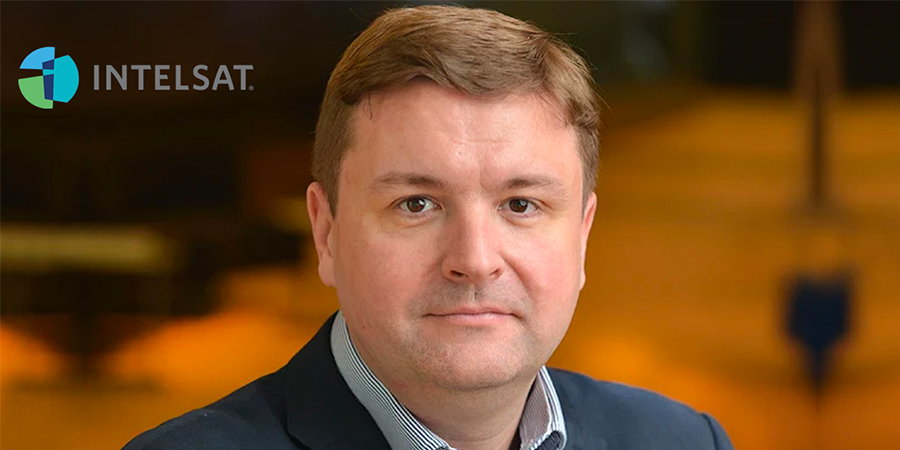Telecom Review conducted an exclusive interview with Rhys Morgan, VP and general manager of EMEA, media and network sales, Intelsat, at CABSAT 2023. He discussed sustainability in space, mission extension, first responders and inflight connectivity, among other insightful topics.
How do Intelsat's advanced satellite fleet and connectivity infrastructures ensure sustainability in space, and how do you reduce space debris in the EMEA region?
Sustainability in space is obviously of fundamental importance to us. Without a sustainable space environment, we can't operate, nor can our colleagues in the industry, and then we can't deliver the services to our customers.
We've got a number of different approaches to ensure sustainability in space. We're a member of the Space Data Association (SDA), and that helps in the commonality of approaches amongst the major operators. We work actively to mitigate any risks around our satellites, such as potential failures, and when they've retired, we put them into a sustainable orbit, so we don't de-orbit them anymore. We keep them in space, but in a safe orbit, so they will be out of the way.
Equally, we're launching mission extension vehicles, so rather than retire aging satellites, we can actually extend the life of those satellites. This gives us the opportunity to launch fewer satellites and keep some of the ones that are in space in service for a longer period of time. This is extremely useful for us and our partners.
In terms of satellite communications (satcoms) innovation, how does Intelsat leverage the EMEA region for inflight connectivity and first responders?
The Gulf region is very interesting for us in terms of inflight connectivity. There are clearly some very major global players here from an airline perspective, and we've worked with some of those today. Equally, there are a number of emerging airlines that have just been founded, or they've got really ambitious growth plans. We're talking to them to make sure that their customers [passengers] have best-in-class connectivity.
It's a very interesting area for us, and it's a growing area for us globally as the Gulf is one of the key growth hotspots.
On the other hand, satellites are great for first responders. It offers the opportunity to bring up services almost immediately — whether it's civil defense, police, ambulance or fire, they use satellite not only in this region but globally to help connect wherever there's a need.
In instances like a major event where a lot of people are present, it is not necessarily a first responder use case, but we see where the network becomes congested and overloaded. Satellites can also help with that.
What is your outlook on the ongoing digital transformation in space and on the ground? What will Intelsat's long-term role be in this?
As we’re seeing in CABSAT or if you're reading about general telecoms news, there's a tremendous amount of innovation in the market, particularly in the space communications market. In my view, it's been the most innovative time in the industry for many decades, and we're taking a very innovative and lean-forward approach to that.
We've invested a tremendous amount of money in our next-generation software-defined network. As I already mentioned, we're looking at ways to improve our sustainability and improve the lifetime of our existing satellite, and what we're moving toward is something that's incredibly flexible, powerful and based on 5G standards.
In this way, [for] our customers — whether they're large telcos, smaller enterprise connectivity networks, first responders or others — all of the devices will be interoperable across networks. That's the direction we're headed. We love all the innovation, and we're very much a part of that.
From your perspective, will satcoms and telecoms continue to work together?
Yes, 100%. I think the non-terrestrial network integration is really moving at pace. People can see that satellites can play an important role in complementing the network, providing coverage in certain areas where needed and increasing network density when required. There are multiple different areas where satellites can play a part, and people are really recognizing the value that they can bring to their network.
Can you share your outlook on the emerging satellite-to-device environment?
Satellite-to-device connectivity is a very interesting and hot topic at the moment. Today, our focus is more on providing connectivity into towers, where towers then connect to devices. But we're taking a keen interest in it and observing how others are leading the way today. We're certainly very engaged in looking at the opportunity that's presented there.
What more can customers expect from Intelsat within the EMEA region for the rest of 2023?
We are extremely positive about what's going on in the region. It's a really exciting area for us. There's a massive amount of innovation and investment in infrastructure going on. We're looking to extend some fairly significant partnerships with people — some of it around sustainability — and we're also hoping that we can bring in some more IFC connectivity so that people get better Wi-Fi on planes.
We're looking at increasing our presence here, as we've already got a very dynamic and growing office in Dubai, and we're looking forward to do more across the region as the year progresses.
